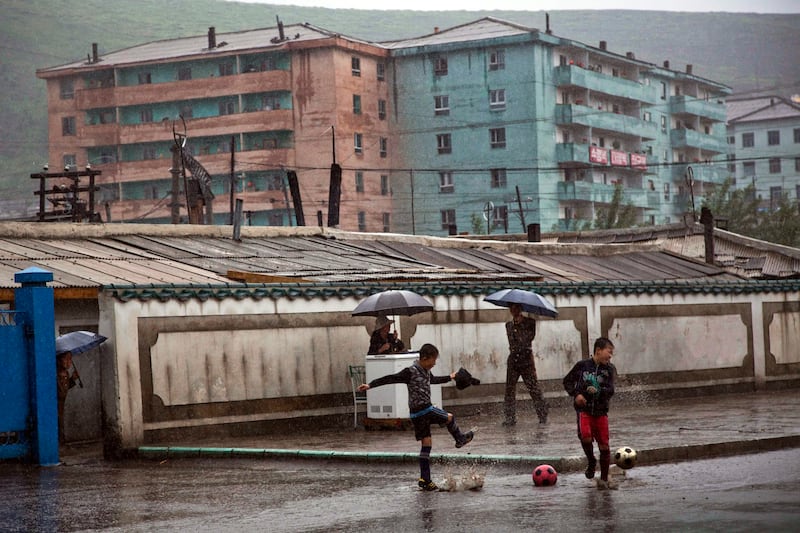Bitter cold in North Korea has forced schools to close, hospitals go into emergency mode and water supplies to be disrupted as pumps freeze over, residents in the country told Radio Free Asia.
The cold also will make food shortages worse, they said, as plants grown in greenhouses are vulnerable during particularly ferocious Siberian winters.
Temperatures plunged below minus 20 degrees Celsius (-4 degrees Fahrenheit), residents said, and fuel shortages and outdated equipment make North Korea particularly vulnerable to weather this bad.
The cold weather forced middle and high schools to extend their winter break, which was supposed to end Feb. 1, a resident in the education sector in the northern province of Ryanggang told RFA Korean on condition of anonymity for personal safety.
Elementary school students usually start on Feb. 18.
But better-funded schools for the children of elites are actually open, the resident said. It’s very common for government officials and their families to enjoy benefits that the rest of society is deprived of.
RELATED STORIES
EXPLAINED: Why are North Korean teachers hauling water up apartment buildings?
North Koreans forced to clear snow from roads to capital on Lunar New Year
“In the city of Hyesan, the schools that are currently in session are Hyesan No. 1 High School, a school for gifted students, and Songhu middle and high schools, which have many children of government officials,” she said. “Other schools extended the winter break until February 10th.”
The resident said the situation was the same for schools in other areas of the province.
“The winter break has been extended to the 10th, but if the cold weather does not subside, the break will be extended to the 15th,” she said.
Healthcare freeze
The resident said that hospitals have had heating problems, and had already reduced their capacity to handle pediatrics, internal medicine and surgery.

“But due to this extreme cold weather, only the emergency room is running as usual,” she said. “Only one provincial medical school hospital is operating normally, and other clinics in Hyesan and rural clinics have stopped operating altogether.”
She also said that two water pumps in Hyesan have frozen over, leaving much of the city without tap water.
“Only about 30% of households in Hyesan have regular water supply,” she said. “Water difficulties for residents are increasing due to this cold weather.”
Frozen crops
A resident from Ryanggang who works in the agricultural sector said the cold weather is damaging greenhouse crops in Ryanggang and neighboring Chagang province.
“Starting on January 27th, ahead of the Lunar New Year, snow suddenly fell and cold winds blew,” he told RFA on Feb. 4, on condition of anonymity for security reasons. “The outside temperature dropped to minus 26 degrees Celsius (minus 14 degrees Fahrenheit) this morning.
He said that temperatures drop that low make it difficult to work outside.
“Hyesan Vegetable Greenhouse Farm, Samjiyon Vegetable Greenhouse Farm, and Potae Vegetable Greenhouse Farm have all been in a state of emergency,” he said.
“The employees of the vegetable greenhouses and mushroom greenhouses in each city and county of Ryanggang Province are working hard to cover the greenhouse roof with straw and collecting firewood to prevent damage from freezing,” he added.
He said that on the Lunar New Year holiday, each farm in the province assessed the vulnerability of seed storage facilities, and many mobilized farm workers to reinforce these against the cold, also by covering them in straw.
“Despite these measures, potato seeds have been severely damaged at (several farms),” he said. “Ryanggang Province is experiencing many difficulties in storing potato seeds, their main crop, due to low winter temperatures.”
Meanwhile, farmers are carrying buckets of water on their backs because water services have been halted by the cold, the agricultural resident said.
It’s been so cold that even diesel gasoline has frozen, meaning farm vehicles cannot lighten their burden, he said.
Translated by Claire S. Lee. Edited by Eugene Whong and Malcolm Foster.
